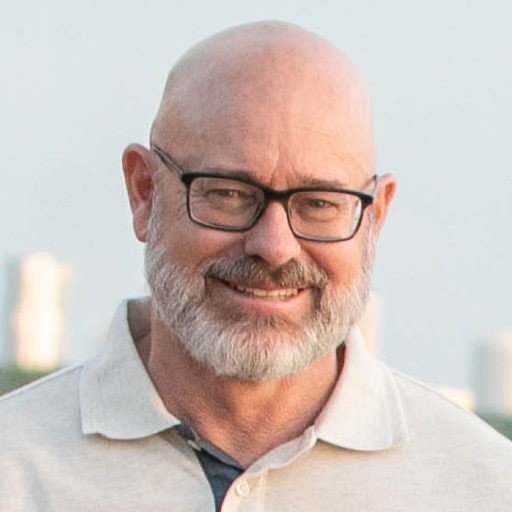22. Designing for Impact: Prof Robert Fitzgerald on bridging research and community needs
Subscribe to the Amplifying Research podcast:
Apple Podcasts | Spotify | Overcast | Pocketcasts
Episode show notes
Today’s episode is a deep dive with Professor Robert Fitzgerald, on how to incorporate human-centred design into your research practices to boost impact for the communities you’re hoping to serve.
Rob has held several leadership roles, including as the Head of the Canberra School of Professional Studies at UNSW, Pro Vice Chancellor of Education Strategy at Charles Darwin University, and Director of the University of Canberra's Inspire Centre for Innovation in Education and Training.
With over 35 years of experience in education and digital transformation, Rob is passionate about human-centred design. In this episode, we explore how to move beyond just filling out a couple of paragraphs in a grant application to actually working with communities to ensure your research not only provides the right solutions but also tackles the right questions.
Rob shares insights from international collaborative projects, illustrating the importance of listening, empathy, and co-design in research. We also discuss how to uncover the impact metrics that truly matter to the communities you’re working with, and how to keep engaging with them throughout the project to ensure you’re on the right track.
If you’re a researcher looking to make a real difference with your work, or if you’re part of a team aiming to bridge the gap between research and community needs, this episode is packed with practical insights and strategies that can help you achieve more meaningful and impactful outcomes.
Our conversation covers:
The importance of human-centred design in research and how it can significantly enhance the impact of your work.
Moving beyond basic grant application requirements to fully engage with the communities your research aims to serve.
How human-centred design requires researchers to stop talking and start asking questions, truly listening with empathy and curiosity.
Strategies for effective listening and empathy in research settings, especially when working with diverse and international communities.
The participatory and collaborative nature of HCD, involving not just community representatives but also other researchers and organizations.
The role of co-design in formulating research questions that are truly relevant to community needs.
Uncovering and understanding the impact metrics that matter most to the communities involved in your research.
The importance of having fun and making sure everyone feels respected and actively involved during research engagements.
Techniques for maintaining ongoing engagement with community partners throughout the research project.
Insights from Rob’s international collaborative projects, highlighting real-world applications of human-centred design.
The ethical considerations and challenges of conducting research that is both respectful and impactful.
Find Prof Robert Fitzgerald online:
Mentioned in the episode:
Gavin Blake, scribe — https://gavinblake.com.au
Practical tips from this episode:
Engaging with communities:
Start with listening: Approach your research with a mindset of empathy and curiosity. Stop talking and start asking questions to truly understand the needs and perspectives of the communities you’re working with.
Be participatory: Involve community members, other researchers, and organizations in a collaborative process right from the start. This ensures that your research is grounded in real-world needs and challenges.
Co-designing research:
Focus on the right questions: Work with the community to co-design your research questions, ensuring they address the most pressing issues and are relevant to those you aim to serve.
Identify key impact metrics: Engage with the community to uncover the impact metrics that matter most to them, and ensure your project is in service of those metrics.
Storytelling for impact:
Embrace the power of stories: Use stories of change to illustrate the impact of your work. Help the community share their own stories, as these narratives can drive further transformation and engagement.
Tell stories beyond the lab: Don’t just focus on academic metrics—share stories that resonate with both your community partners and funding bodies to demonstrate the broader impact of your research.
Maintaining relationships:
Keep the engagement ongoing: Regularly check in with your community partners, not just at the start or end of a project, to ensure you’re on the right track and maintaining strong, trust-based relationships.
Make it enjoyable: Ensure that the process is fun and engaging for everyone involved. When people feel respected and actively participate, the outcomes are often more meaningful and successful.
Credits:
Host & Producer: Chris Pahlow
Edited by: Laura Carolina Corrigan
Consulting Producers: Maia Tarrell, Michelle Joy
Music by: La Boucle and Blue Steel, courtesy of Epidemic Sound
- Public engagement
- Storytelling
- Career development
- Team alignment
- Making your work relatable
- Strategic comms
- Communicating in different formats/mediums
- Your pitch
- Stakeholder/audience mapping
- Talks and presentations
- Mentorship
- Collaborating with professional staff
- Interdisciplinary collaboration
- Community engagement
- Feedback
- Listening
- Representing your discipline
- DEI
- Strategy
- CALD/multicultural communities
